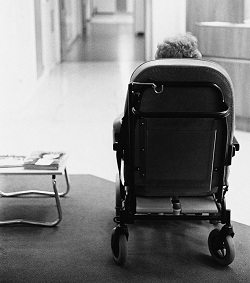 Last week I wrote about ageism, a widespread, seriously underexposed problem. If you agree that it’s a problem in general, try being LGBT and old.
Last week I wrote about ageism, a widespread, seriously underexposed problem. If you agree that it’s a problem in general, try being LGBT and old.
The “It Gets Better” campaign (a credit to Dan Savage, who started it) urges and encourages LGBT youth to hang in there in the face of homophobic bullying and rejection, with the promise of a better, easier future. It’s a great idea, very much needed, and it’s helping. But for someone age fifty, sixty, or older, “it gets better” tends to beg the question, When?
Consider the situation for an LGBT person who came of age in the last century. On June 28, we’ll celebrate the anniversary of the Stonewall riots, the violent demonstration widely regarded as the catalyst for the new civil rights movement. Anyone older than about 50 probably has some recollection of the year 1969, and that’s a whole lot of people of every stripe, including LGBT, living and breathing on the planet, and from time to time being subjected to ageism.
Back in the late sixties, when I was in high school—not to put too fine a point on it—there was no such thing as being gay. Even in progressive, liberal homes, homosexuality was rarely discussed, and when it was, it was in a whisper, behind a cupped hand.
That didn’t mean, of course, that people weren’t gay. It just meant that to admit it—even to oneself—was a little like testing the temperature by sticking your foot in boiling water. There were no social media, no resources like the Trevor Project, no Facebook groups like Wipe Out Homophobia, STOP Teenage Suicide, and the Equality Mantra. Hell, we didn’t even have computers. If we wanted to have a conversation, we had to be there in person, dial a telephone, or sit down with paper and pen or a typewriter (you can Google that to find out what it was) and write a letter. There were no wise older role models encouraging young people to come out, to find a safe haven where they would be embraced, to seek out others like them. In short, LGBT kids were invisible. And most of those who would be role models were well hidden in their own closets, for fear of reprisal and rejection.
Gay people often defied their own nature, to comply with familial and social expectations. They married the opposite gender and produced families. When they felt same-sex attraction, they worked hard to bury it under layers of self-loathing. In many cases, they lived for years with this fundamental lie about themselves, only to venture out, long past the age of puberty and adulthood, one toe at a time. Mike Mills, whose life was the basis of the movie Beginners (2010), writes about his father, who finally made it out of the closet when he was nearly eighty years old. A child of the Depression and World War II, he told his son, “Your mother took off her Jewish badge, and I took off my gay badge, and we got married.”
Stonewall triggered the march for civil rights, and in the past fifteen years progress has accelerated. It was in 1997 that Ellen DeGeneres famously came out on network television, and made national news and the cover of Time. Since then, marriage equality has become the law in seven states plus DC, and our first sitting president has endorsed it. And revelations about celebrities’ sexuality have become increasingly ho-hum. This mainstreaming of our diverse sexuality is a good thing.
I’m not suggesting that every gay person older than 45 had a horrible childhood and youth, any more than I’m asserting that LGBT people coming of age today don’t ever experience denial or social pressure. Far from it; indeed, youth bullying and suicide are a growing and a daunting problem. But bullying is not only a youth-on-youth sport (as the recent horrifying assault on sixty-eight-year-old Karen Klein painfully demonstrated). Kids (and adults) can be cruel to anyone perceived as “other.” Often LGBT seniors are subjected to abuse comparable to the bullying their younger counterparts must deal with.
Even within the LGBT community, elders are dismissed and disregarded in favor of the robust youth. LGBT seniors sit even farther out on the fringe of society, and are at greater risk of health problems and suicide, than their straight peers (although definite statistics are hard to come by, because an accurate count of the LGBT population is elusive, for all the reasons you can imagine).
LGBT people of the future are likely to be more accepted, less marginalized, and more comfortable being themselves than they could have hoped, thanks to the widespread push for equality in which we are engaged today. And thank goodness for so much progress, even though we have miles to go before full equality is realized. For LGBT people in their fifties and up, the future is shorter, and the odds for a marked improvement in their lives accordingly smaller.
There is some hope, though: The National Resource Center on LGBT Aging was established to aid communities with services for the aging LGBT population. If our aging LGBT citizens live long enough, support of this sort from the federal government may concretely improve the winter of their lives. Recognition of the problem is the critical first step. Solving it is up to all of us.
Better for Whom? Ageism and the LGBT Community,
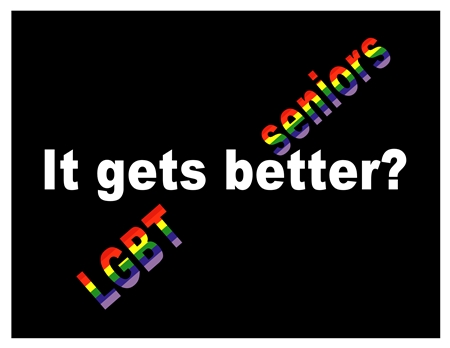
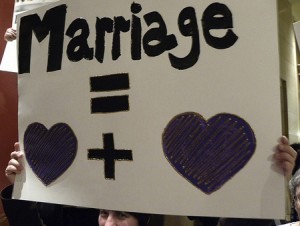
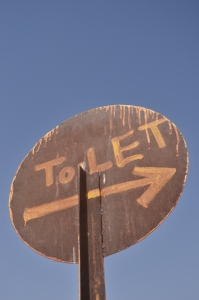
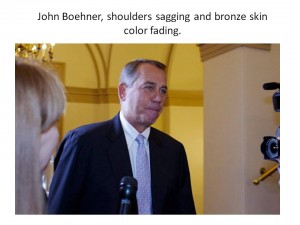
Katie
28 Jun 2012You are so right! I’m of a similar age to you, and the kids, and the LGBT groups, aren’t willing to learn from our experiences. I admit 1969 was a long time ago, but they (teens and twenty-somethings) wouldn’t be where they are today with out the efforts of previous generations. We couldn’t have done what we did without the previous generations of brave, selfless women warriors such as the Suffragettes.
I’ll stop now before I go off on one of my patented rants, I’ll just say that if I have a clear site of the future it’s because I stand on the shoulders of the giants who came before me.